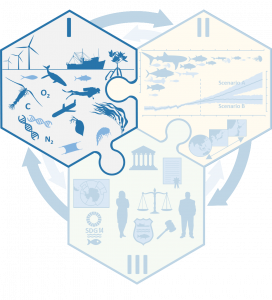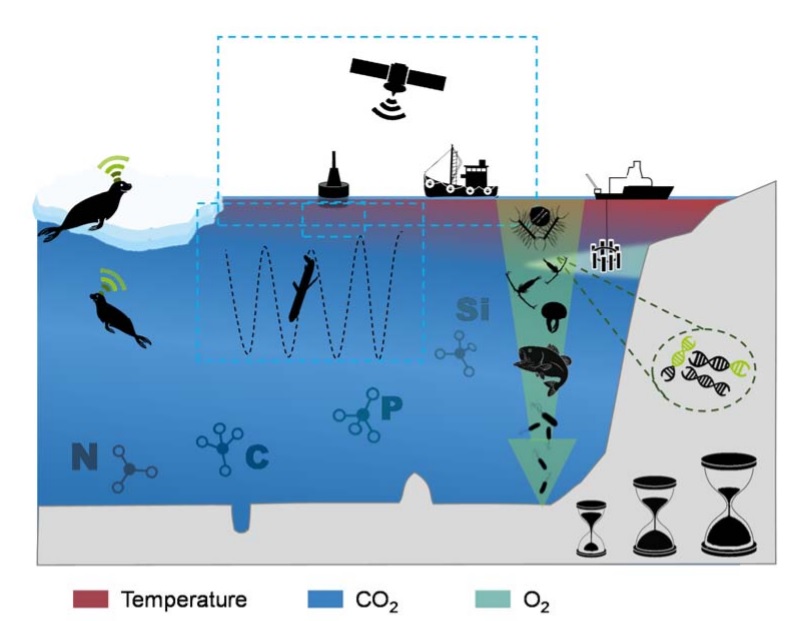Grand Challenge I
Understanding and quantifying the state and variability of marine ecosystems
Champion: Alice Newton, Dongyan Liu and Nina Bednaršek
Deputy Co-Champion: Wen-Chen Chou
The Challenge: To develop whole system-level understanding of ecosystems, including complex biogeochemical cycles and human interactions, together with understanding of the scales of spatial and temporal variability of their structure and functioning.


Infographic illustrating Grand Challenge I (left). The time-varying and spatial scale-relevant interactions recognize multiple stresses, such as temperature, carbon dioxide (CO2), oxygen (O2), and fishing on marine biogeochemistry, food webs and human systems. Adaptation of marine organisms through evolution and metabolic diversity provides potential for ecosystem responses to changes. Advances in understanding are made through innovative data collection mechanisms such as autonomous animal profilers, underwater gliders, and fishing vessel global positioning systems. Understanding of the structure and function of ecosystems across multiple scales requires analyses of local, regional and ocean/global scale processes and integration through coupled modelling systems.
Priority research objectives (2022-2025)
- Stressors-combined effects
- Eutrophication pathways described for coastal seas around the world
- Combination of stressors and cumulative impacts investigated in ecosystems
- Climate change and variability integrated
- Impact on upwelling regions quantified
- Resilience of ecosystems can be described and potential for ecosystems service disruption predicted
- Impacts on society – preparation for a changed future
- Extreme events can be predicted and socio-ecological systems prepared
- Determine how many we can prepare for, and consider non-stationarity in ecosystems and management (beyond fisheries)
Key deliverables of Grand Challenge I
- Eutrophication pathways described for coastal seas around the world
- The combination of stressors and cumulative impacts investigated in ecosystems (key environmental variables e.g. SST/O2/pH)
- Impact on upwelling regions quantified
- Resilience of ecosystems can be described, and potential for ecosystems service disruption predicted
- Extreme events can be predicted, and socio-ecological systems prepared
- Determine how we can better prepare for, and consider, non-stationarity in ecosystems and management (beyond fisheries)